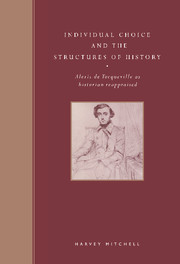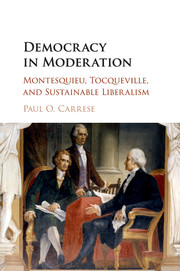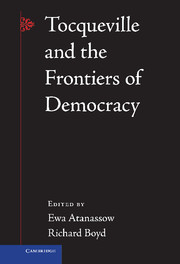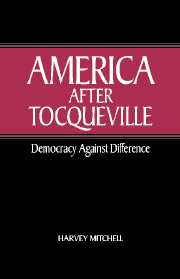Individual Choice and the Structures of History
Alexis de Tocqueville is recognized as one of the most important nineteenth-century historians. In this perceptive study, Harvey Mitchell examines Tocqueville's works, in particular Souvenirs of 1848 and his voluminous correspondence, to shed new light on Tocqueville's philosophy of history. Professor Mitchell exposes the tensions which Tocqueville perceived between determined actions and choice, continuity and change, asking what happens to individual liberty if it is impossible to make a clean break with the past, and if past developments continue to influence the future. Professor Mitchell draws on the full range of Tocqueville's writings to find in them a unity of thought and a deep involvement with the philosophical questions raised by historical continuity and change.
- The first study of Tocqueville as a philosopher of history
- Uses the full range of his writings, from well-known works to correspondence to notes and book reviews
- Deals with central questions of historical philosophy: individual choice versus historical forces, liberty and democracy
Product details
May 1996Hardback
9780521560917
306 pages
235 × 160 × 24 mm
0.585kg
Available
Table of Contents
- Acknowledgments
- Part I. Introduction:
- 1. Frameworks
- Part II. Paradoxes in Tocqueville's Idea of History:
- 2. Towards a theory of history
- 3. Tocqueville's conceptualisation of moral choice and the particular
- Part III. Plotting Crisis and Change:
- 4. Tocqueville's uses of intentionality and necessity in the 'Souvenirs'
- 5. Towards the history of 'L'Ancien Régime et la Révolution'
- 6. Three faces of history in democracy in America
- Part IV. Historian of the Breakdown of the Old Society:
- 7. Tocqueville on the general laws of revolution
- 8. The aristocratic ethos on the defensive
- 9. Ideas and public opinion
- Part V. Epilogue:
- 10. Further reflections
- Select bibliography, Index.






